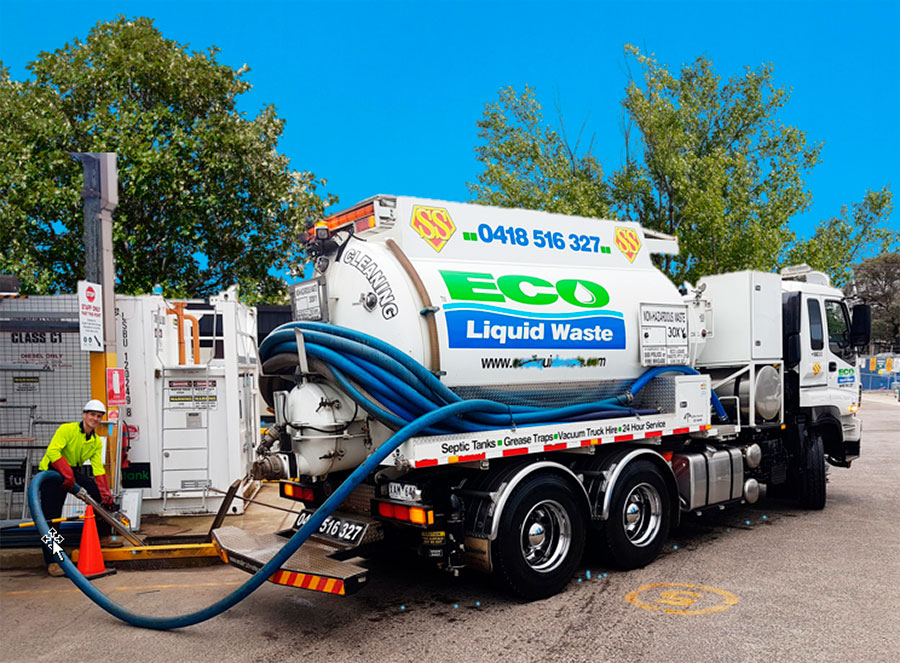Some Of Reclaim Waste
Some Of Reclaim Waste
Blog Article
Get This Report on Reclaim Waste
Table of ContentsGetting My Reclaim Waste To WorkWhat Does Reclaim Waste Mean?8 Easy Facts About Reclaim Waste ShownA Biased View of Reclaim Waste8 Easy Facts About Reclaim Waste Described
Check out the kinds, incidents, and types of fluid waste. Residential sewer waste describes the waste and items from a domestic sewage-disposal tank. This type of waste is created by people in houses, institutions, and various other structures. This only includes sewage-disposal tanks that have a drain field. The correct management and disposal of domestic sewer waste require fluid waste to be moved to a sewage treatment plant where the correct approaches and tools are applied to purify and take care of waste.
Business waste usually includes potential dangers, such as combustible products or a blend of fluid and solid waste items, and needs an advanced and detailed disposal procedure. The disposal of industrial waste typically entails the purification of waste prior to transport to make sure risk-free and correct disposal. Hazardous waste is developed from by-products and drainage of industrial processes and manufacturing.
This sort of waste can not make use of the very same sewer monitoring transportation or processes as septic or business liquids. The industrial waste monitoring process needs the inspection and screening of liquid waste prior to it goes through the disposal procedure (industrial wastewater treatment). Drainage waste is the fluid waste that originates from overflow and excess stormwater in highly populated areas or cities
Runoff waste can trigger contamination and flooding if not taken care of effectively. Learn more about sewer cleansing and waste administration. Making certain correct waste monitoring can avoid catastrophes and lower ecological harm. Both individuals in domestic setups and experts in business or manufacturing sectors can take advantage of recognizing the processes and policies of liquid waste management.
The Basic Principles Of Reclaim Waste
Contact PROS Services today to discover our waste management and disposal solutions and the appropriate methods to care for the fluid waste you create.
(https://share.evernote.com/note/7e2c20e2-4e08-1523-1aa2-d06cf7e27761)Do you understand what occurs to your water when you disengage, purge the toilet or drain the cleaning machine? No? Well, it deserves understanding. This so-called 'wastewater' is not only an essential resource however, after treatment, will certainly be released to our land, rivers or the sea. Made use of water from commodes, showers, bathrooms, kitchen sinks, washings and commercial processes is understood as wastewater.

water made use of to cool machinery or clean plant and tools). Stormwater, a type of wastewater, is drainage that streams from agricultural and city areas such as roofs, parks, yards, roads, courses and seamless gutters into stormwater drains, after rainfall. Stormwater flows untreated directly to neighborhood creeks or rivers, eventually reaching the ocean.
Reclaim Waste for Beginners
In Queensland, most wastewater is treated at sewage treatment plants. Wastewater is moved from residential or helpful hints commercial sites via a system of sewage systems and pump terminals, understood as sewerage reticulation, to a sewer therapy plant.
The Department of Natural Resources recommends city governments concerning managing, operating and preserving sewerage systems and treatment plants. In unsewered areas, local governments might need householders to set up specific or household sewage therapy systems to deal with domestic wastewater from toilets, cooking areas, washrooms and washings. The Department of Natural Resources authorises making use of family systems when they are verified to be effective.
Many stormwater gets no treatment. In some brand-new subdivisions, therapy of some stormwater to get rid of clutter, sand and crushed rock has started utilizing gross toxin traps. Wastewater therapy happens in 4 stages: Gets rid of strong issue. Larger solids, such as plastics and other objects wrongly released to sewage systems, are removed when wastewater is passed with displays.
Wastewater then streams into huge containers where solids work out and are eliminated as sludge. Grease and scum are skimmed from the surface area. Uses little living organisms called micro-organisms to break down and eliminate remaining liquified wastes and fine particles. Micro-organisms and wastes are included in the sludge. Gets rid of nitrogen and phosphorus nutrients that can create algal blossoms in our waterways and intimidate aquatic life.
See This Report about Reclaim Waste
Nutrient elimination is not readily available whatsoever sewage treatment plants since it needs pricey specialist tools. It is coming to be a lot more usual in Queensland. Clear liquid effluent generated after therapy might still contain disease-causing micro-organisms. If this effluent is launched into rivers such as rivers or the sea, the micro-organisms will ultimately die out.

Many wastewater moves right into the sewerage system. Under the Act, local federal governments provide approvals and permits for eco relevant activities (ERAs) including wastewater releases that might have a neighborhood effect.
Reclaim Waste Fundamentals Explained
Monitoring gives valid information about water top quality and can validate that licence problems are being met. The info obtained via monitoring offers the basis for making water high quality choices.
Report this page